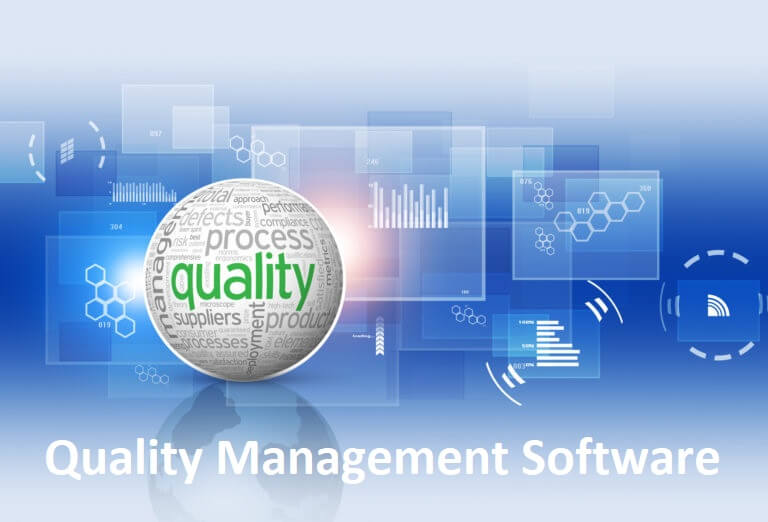In every industry, delivering high quality products is important in protecting the brand’s reputation, reducing costs, and increasing the operating margin.
Quality management through a paper-based system has two major weaknesses – errors and inefficiencies. A quality management software eliminates these weaknesses by streamlining and integrating all processes.

What is a Quality Management Software?
A QMS is the system by which quality policies and objectives in an organization are achieved by coordinating the company’s activities to meet customer satisfaction and regulatory requirements.
It is achieved by documenting processes, procedures, and responsibilities so that these requirements are met continuously.
A quality management software automates this process by providing a centralized means to manage the Quality Management System (QMS). The software works on document control, non-conformance tracking, employee training, audit management, and corrective action.
How Can It Benefit Your Company?
Here are seven ways your company is sure to benefit from a QMS software.
1) It provides a streamlined approach to quality management
By integrating the quality management processes in every department, there is collaboration and seamless flow of information across every section of the organization, promoting quality production while achieving compliance.
2) Better data records
Unlike in a paper-based system, a QMS software makes it possible for real-time management and recording of data. The records are easily accessed through access codes, making it possible to point out who made a specific change and when the change was made. It ensures compliance to record retention policies.
3) It is time-saving
Unlike the traditional method of quality management, a QMS software automates processes saving plenty of time that could have been consumed filling out paperwork. This time can be used to undertake more complex tasks.
4) It makes it easier to implement corrective actions
A company’s quality management policies are always evolving to meet current state regulations as well as changes in the organization’s production. A QMS software provides a reliable closed-loop control making it possible to implement the improvement initiatives in the quality management policies and processes.
5) Minimizes errors
Investing in software eliminates the errors, inefficiencies, and non-compliance common with paper-based systems. This inefficiencies and errors can result in situations that destroy the company’s reputation, reduce sales, and cause costly fines resulting from non-compliance.
6) Building customer loyalty
Automating the quality management system ensures that the company meets all requirements, thus achieving customer satisfaction. A satisfied customer gains confidence in the organization and this builds loyalty in the brand. It enables the company to capture and build its market share.
7) Increased production
A QMS software promotes better training of employees and proper evaluation of the production techniques. This enhances performance consistency, and employees are trained to troubleshoot and take corrective actions on defects that may occur in the process of production. It reduces the chances of a product rework.
Every company concerned about saving costs, satisfying the customers, and complying with quality regulations should invest in a quality management system.
In addition, a quality management software ensures there is better collaboration and flow of information between departments, provides easy retrieval of data records, and makes it easy to implement changes in the quality management policies and procedures.

